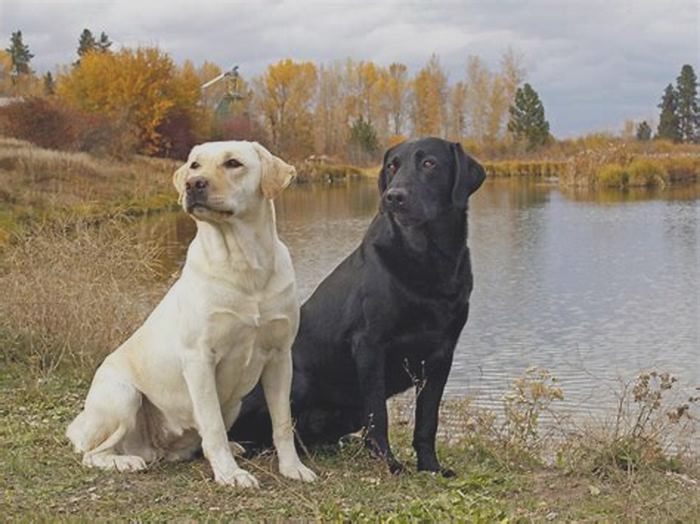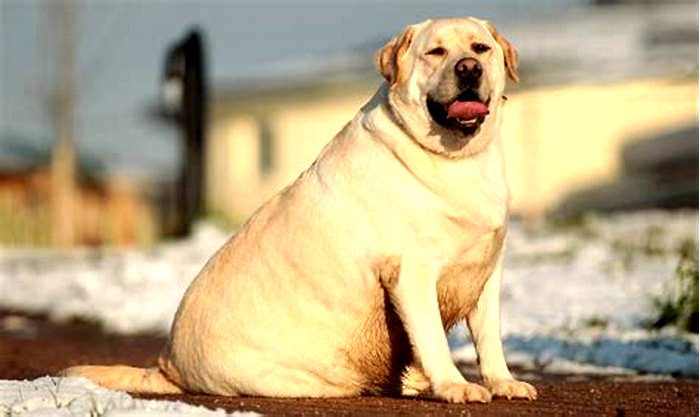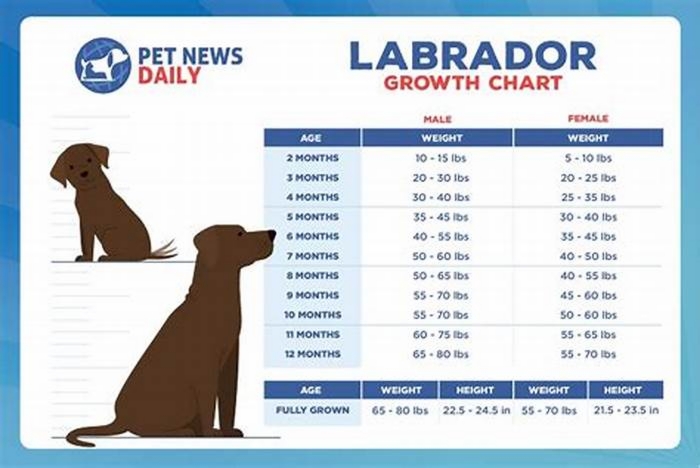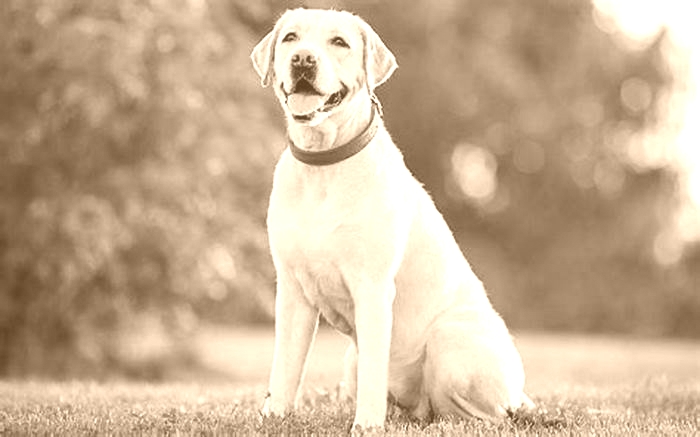Do Labradors eat a lot
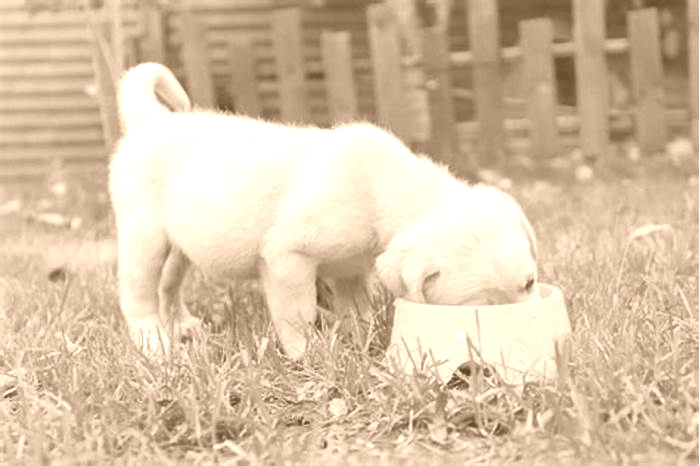
Do Labradors Eat A Lot? 3 Ways To Save Money
Labradors are known for their hearty appetites, but do labradors eat a lot?
This article explores the factors influencing Labradors eating habits and provides tips to prevent overeating.
We also delve into the costs of feeding Labradors and offer budget-friendly options to save money on dog food.
From understanding their appetite to exploring alternative nutrition options, this article aims to provide research-based insights and practical strategies for Labrador owners looking to manage their pets eating habits and save some money along the way.
Key Takeaways
- Labradors have a genetic mutation that can cause overeating, so its important to monitor their food intake and prevent overeating.
- Feeding Labradors on a schedule and not leaving food out all the time can help prevent overeating and maintain a healthy weight.
- Premium foods can be better for a Labradors overall health, but its important to consider budgeting for hypoallergenic food if they have severe allergies.
- To save money on dog food, consider using automatic reordering, ordering in bulk, and taking advantage of discounts and sales.
Do Labradors Eat A Lot? Understanding the Labradors Appetite
Labradors have a genetic mutation that can cause them to overeat, so its important to feed them on a schedule and not leave food out all the time.
Labradors exercise needs and their impact on appetite significantly affect their eating habits.
Labradors are known for their high energy levels, and regular exercise can affect their appetite.
Labrador owners must provide them with ample exercise to help regulate their appetite and prevent overeating.
Additionally, genetics also play a role in Labradors eating habits.
The genetic mutation predisposing them to overeat means they may have a stronger drive to consume more food.
Factors Influencing Labradors Eating Habits
Regular exercise and genetic mutations can influence the eating habits of Labradors, impacting their appetite and potential for overeating.
Understanding the Labradors metabolism and the role of exercise in their appetite is crucial for maintaining their health.
Labradors have a high energy level, and regular exercise can help regulate their appetite by increasing their metabolism.
This means that they may need more food to fuel their active lifestyle.
However, its important to monitor their food intake and prevent overeating, as Labs have a genetic mutation that can cause them to overeat.
Feeding them on a schedule and not leaving food out all the time can help control their eating habits. Portion Control training is also effective.
By considering these factors, Lab owners can ensure that their furry friends stay healthy and maintain a balanced diet.
| Factors Influencing Labradors Eating Habits | ||
|---|---|---|
| Regular exercise | Genetic mutations | Metabolism |
| Impact on appetite | Potential for overeating | Role of exercise |
Tips for Preventing Overeating in Labradors
Implementing a feeding schedule and avoiding leaving food out all the time can effectively prevent Labradors from overeating.
Labradors have a genetic mutation that can cause overeating, so its important to establish a routine.
Regular exercise can also help regulate their appetite.
Regarding Labradors, training techniques can play a significant role in preventing overeating.
Teaching them basic commands like sit and stay can help them develop self-control around food.
Additionally, providing homemade dog food can be a healthier alternative to commercial brands, giving you more control over the ingredients and portion sizes.
However, its essential to consult with a veterinarian or a canine nutritionist to ensure your homemade dog food meets all of your Labradors nutritional needs.
Budget-Friendly Feeding Options for Labradors
Switching to more affordable dog food brands can be a viable option for budget-conscious Labrador owners.
While premium foods may offer benefits for a dogs overall health, there are alternative options that can be more budget-friendly.
One option is to consider hypoallergenic diets, especially if your Labrador has severe allergies.
These diets are formulated to minimize potential allergens and can be found in more affordable brands.
Another option is to explore homemade dog food recipes.
By making your dog food, you have greater control over the ingredients and can often save money compared to buying commercial brands.
However, consulting with a veterinarian or canine nutritionist is important to ensure the homemade diet meets your Labradors nutritional needs.
Smart Shopping Strategies for Saving Money on Dog Food
Labrador owners can maximize their savings on dog food by utilizing smart shopping strategies.
When choosing between homemade and commercial dog food, its important to consider the nutritional value and cost-effectiveness.
While homemade food allows more control over ingredients, it can be time-consuming and expensive.
On the other hand, commercial dog food offers convenience and a balanced diet at a lower cost.
To further enhance a Labradors diet, incorporating natural supplements can be beneficial.
Supplements like fish oil and glucosamine can promote healthy joints and a shiny coat.
However, its essential to consult with a veterinarian to ensure proper dosage and suitability for the dog.
Maximizing Savings Through Bulk Purchasing and Discounts
By taking advantage of bulk purchasing and discounts, pet owners can maximize their savings on dog food.
Buying in bulk offers several benefits, including a lower price per ounce and the ability to qualify for free shipping.
Many retailers and online platforms offer discounts when purchasing larger quantities of dog food, allowing pet owners to save money in the long run.
Additionally, it is important to consider finding affordable hypoallergenic food for dogs with allergies.
Hypoallergenic dog food can be more expensive, but by researching different brands and comparing prices, pet owners can find affordable and suitable options for their dogs dietary needs.
Exploring Alternative Options for Affordable Labrador Nutrition
Seeking alternative options for affordable Labrador nutrition can provide pet owners with cost-effective ways to meet their dogs dietary needs.
Balanced nutrition is crucial for Labradors, as it promotes overall health and helps prevent common health issues such as obesity and joint problems.
While commercial dog food brands offer convenience, they can be expensive in the long run.
Homemade dog food recipes for Labradors can be a great alternative, as they allow pet owners to control the ingredients and ensure a balanced diet.
Incorporating a variety of lean meats, whole grains, fruits, and vegetables can provide the necessary nutrients for a healthy Labrador.
Pet owners can save money by researching and experimenting with homemade recipes while prioritizing their dogs nutrition.
| Benefits of Homemade Dog Food for Labradors | Sample Homemade Dog Food Recipe |
|---|---|
| 1. Control over ingredients and quality | 2 cups of cooked chicken breast |
| 2. Ability to tailor the diet to specific needs | 1 cup of cooked brown rice |
| 3. Potential cost savings | 1/2 cup of cooked carrots |
| 4. Fresh and natural ingredients | 1/2 cup of cooked green beans |
| 5. Bonding experience with your pet | 1/4 cup of plain yogurt |
| 1/4 cup of pumpkin puree | |
| 1 tablespoon of fish oil | |
| Mix all ingredients together and serve |
Frequently Asked Questions
How Can I Train My Labrador to Stop Overeating?
Labrador weight management can be achieved through portion control training. Regular exercise and a feeding schedule can help prevent overeating. Monitoring their energy levels and considering any genetic factors contributing to their appetite is important.
What Are Some Budget-Friendly Dog Food Options for Labradors?
Labradors can have a big appetite, but affordable dog food brands are available to help save money. Additionally, homemade dog food recipes can be a budget-friendly option that allows you to control the ingredients.
Are There Any Specific Strategies for Saving Money on Dog Food Purchases?
Dog food coupons and homemade dog food recipes can effectively save money on dog food purchases. These options provide opportunities to reduce costs while providing nutritious meals for Labradors.
Can I Save Money by Purchasing Dog Food in Bulk?
Purchasing dog food in bulk can save money and provide cost-effective Labrador nutrition. Benefits include reduced price per ounce and the potential for free shipping. Consider automatic reordering and occasionally changing the food to find sales or discounts.
Conclusion
Labradors can be fed affordably through homemade or raw feeding options.
These alternatives allow owners to control the quality and cost of their dogs nutrition.
However, it is important to consult with a veterinarian to ensure a balanced diet.
I'm Charles Ryan, a California-based Labra parent, violinist, and passionate canine enthusiast. Armed with a bachelor's degree in Animal Behavior, my love for dogs led me to work in a dog shop and start a helpful blog for Labra parents. Cooper, my loyal 7-year-old Labrador, and I continue to inspire others with our canine adventures.
Latest posts by Charles Ryan
(see all)Why Do Labradors Eat So Much? Lets Science This Thing!
Have you ever felt like calling your Lab a glutton for how much he loves food? Well, dont, because your dog is not necessarily to blame for always being hungry. You should instead learn the truth behind Labradors obsession with food to answer the question, Why do Labs like food so much?
Labradors eat so much because many have a genetic mutation of the POMC gene that stops their brain from receiving the signal that they are full. But some Labradors may also overeat because they are sick, have a medical condition, have nutrient deficiencies, or are stressed.
I have also wondered why Labradors are food motivated. Especially regarding my rather portly neighbors Labby called Cooper. So I queried the science behind why Labradors eat so much and put together this article.

Read on to discover why Labradors eat so much and the surprising answers that I found!
Do Labradors Love to Eat?
Labradors love to eat, which is why so many of them tend to beg constantly for treats and scraps. They also tend to wolf down their meal when its given to them and soon go on the hunt for more. Labradors love food so much the AKC lists them among the 10 dog breeds that love to eat.
More characteristics qualify Labradors as lovers of food which are also common among other dog breeds that love to eat. These are:
- They are readily trainable with food treats.Because Labradors are food-motivated, owners may easily train them with a treat reward system.
- They indulge in food-begging behavior. Labradors are clever manipulators of their owners emotions, exhibiting hungry behavior and pawing or whining.
- They are more prone to obesity. A study on dog breed predisposition to overweight dogs in the UK placed Labradors 3rd among dogs with high odds of being overweight after Pugs and Beagles.
But what is it that really causes your Labrador to love to eat and manifest these characteristics of a food-loving dog? Thats what Ill be answering in the next section.
Why Are Labradors Always Hungry?
Most Labradors are always hungry because of a POMC gene mutation that compromises the process through which the brain receives signals to end the feeling of hunger once your dog has eaten. Other Labradors might always be hungry due to medical conditions, nutritional deficiencies, or stress.
Learn Why Labs Love To Eat In This YouTube Video
Labradors Are Always Hungry Due to the POMC Gene Mutation
In its normal function, the POMC gene codes the beta-MSH and beta-endorphin proteins responsible for satiety. As such, they will signal the brain to neutralize the feeling of hunger once your dog has had its meal.
In Labrador Retrievers, however, the mutation of the POMC gene distorts this process, and your dogs brain does not receive the cease-hunger signal, making your Lab stay hungry even after a good meal.
The study that discovered these facts also found that the POMC gene mutation does not characterize all Labradors but only 25% of the Lab population. Whats more, theres a 76% prevalence of dogs with POMC mutation among service Labradors.
If your Labrador has a POMC gene mutation, it will have these three characteristics:
- A higher body weight.
- A higher body fat composition than other dogs.
- An increased appetite and food motivation.
These characteristics explain the risk of obesity in Labradors. Note, however, that although obesity is often linked to diabetes mellitus in dogs, Labs with the POMC gene mutation are not at risk of diabetes mellitus, according to a 2017 study. The study ruled out any association between the two conditions.
Also, theres no known treatment for POMC gene mutation yet. As such, Lab owners with affected dogs have to manage the condition by consulting their vet about a diet and exercise plan that would help their dogs maintain healthy body weight.
Labradors May Always Be Hungry Due to Medical Conditions
Some medical conditions could be the answer to the question, Why do Labradors eat so much? These conditions include:
- Intestinal parasites such as roundworms, hookworms, whipworms, and tapeworms. Intestinal worms steal your Labs food nutrients. They can cause intestinal bleeding, leading to issues like anemia and causing your dog to feel depleted of energy, hence requiring to eat more frequently.
- Diabetes mellitus (sugar diabetes). It causes poor blood glucose conversion to energy, making your Lab constantly need to eat to replenish the low energy levels.
- Cushings disease. Excessive cortisol levels stimulate your dogs appetite and can lead to being overweight.
- Exocrine pancreatic insufficiency. It causes your dogs food not to be fully digested, and nutrients are not adequately absorbed.
- Inflammatory Bowel Disease (IBD). Chronic inflammation of the intestines interferes with nutrient absorption.
- Cancer. It increases the need for energy in the body, leading to increased appetite.
Labrador owners need to learn the symptoms of these medical conditions to consult a vet if their Labrador is always hungry and shows clinical signs of any of the diseases.Your vet can then conduct testing for increased appetite in your dog.
Labradors May Always Be Hungry Due to Nutritional Deficiencies
If you are not giving your Labrador the right food portions for his age, weight, and activity level, your dogs daily meal could lack essential nutrients. In this case, your Lab will always feel hungry as he needs to eat more to meet his energy requirements.
Due to poor nutrition, low energy can cause your dog to constantly beg for scraps or eat anything he finds on his way, including non-food items.
Do you want to know the best diet to feed your Lab? Check out this article, Best Diet for Labradors: Nutrition, Types, and More! You can also consult your vet about your Labs diet to ensure your dog gets the nutrition he needs.
Labradors May Always Be Hungry Due to Stress
Hunger and overeating have been linked to stress. So, if your Labrador is always hungry and eating, it could be due to anxiety, phobia, or fear. A study found that emotional eating in dogs was associated with stress.
This kind of perpetual appetite in your Lab is not healthy either as a cause or consequence, as it can lead to overweight or obesity. As such, you should ensure that your Labrador is happy and has the physical and mental stimulation characteristic of a high-energy dog.
Conclusively, whether your Lab is always hungry due to the POMC gene mutation, a medical condition, nutritional deficiencies, or stress, you should create a healthy Labrador feeding schedule to keep his eating under control and address the hunger-triggering factors.
How Often Should a Labrador Be Fed?
As a general rule, Labradors should be fed twice a day, 12 hours apart. But you may adapt this rule depending on your Labs age, gender, food type, activity level, and health. Each Labrador has unique requirements, and you should not be rigid with recommended daily allowances.
A quick focus on these factors will help you understand why you can adapt the twice-a-day feeding Labs rule.
Age
Younger Lab puppies have different energy needs than older dogs and need to eat smaller meals more often. Instead, healthy adult Labs have higher energy needs and can eat larger meals less often.
For example, this is how a mature Labrador (1-2 years) and a 3-month Lab puppy feeding schedule should look, courtesy of Purina.
| Labrador Age | Recommended Food Amount (in cups) | Number of Meals in Day |
| 1 to 2-year-old Labrador | 5 11 (1.3 2.6 L) | 2 |
| 3-month-old Labrador puppy | 1 2 (250 630 ml) | 4 |
Gender
A couple of gender-related factors can create a difference in the number of times you should feed your Labrador.
Male Labradors have higher body weight than females and may need more food than their female counterparts. For example, a male Lab can grow up to 80lbs (36 kg), and going by the Purina feeding chart mentioned earlier, if your male Lab is 80lbs (36 kg), youll need to give him between 5and 11 cups (1.3 2.6 L) of food daily.
Female Labradors can grow up to 70 lbs (32 kg). If your female Lab is 70lbs (32 kg), youll need to feed her between 2 and 6 cups (620 ml and 1.5 liters) of food daily.
Considering the larger food amounts required by your 80lbs male Lab, you may want to divide his 11 cups (2.6 L) of food into 3 small meals rather than the traditional 2 meals a day. Dividing your Labs food portion will work better for your dogs digestion.
Female pregnant Labradors may require to eat a bit more food to sustain their gestating body, especially during the first weeks. A larger amount of daily food for a pregnant Lab is best served in smaller multiple meals instead of more food in the usual two meals a day.
Food Type
The type of food you feed your Lab can determine how often you feed him. For example, though they have to meet specific requirements, commercial dog foods may differ in nutrient composition, where one type of dog food carries the nutrients your dog needs in a small amount while another gives the nutrients in a larger amount.
In the first case, feeding your dog twice daily would be enough. But if your dog needs a larger amount to meet his nutritional needs, then you may need to feed him more times.
Reading the dog food listing on the package should help you decide on the number of times to feed your Lab. Alternatively, refer to the serving instructions on the dog food package.
Lets take the Royal Canin Labrador Dog Food from Amazon as an example. This dog food is made to provide a balanced feed to Labradors older than a year and balances out the fat and protein ratio to suit the breed.
To answer the question of how often you should feed a Labrador with this particular product, the serving suggestion on the Royal Canin Labrador food package shows the number of cups your Labrador should eat per day in relation to its weight and activity level, divided into two meals.
For example, a 44-pound (20 kg) Labrador with an hour of daily activity should be fed 4 cups (1 L) of Royal Canin divided into two meals.

Activity Level
Labradors with a high activity level should be fed more food to replenish the energy expended during exercise. The more food a dog eats, the more you should break it down into smaller meals.
For example, a 77-pound (35 kg) male Labrador is assigned 6 cups of Royal Canin food if he does 1 hour of activity daily. If the number of activity hours rises to 2, you should feed the Lab 7 cups (1.7 L) daily.
The increased food amount would be better divided into three meals rather than the usual two. This rationing is because feeding your dog more than it is used to eat in a single meal can cause slowed digestion and, consequently, bloating and stomach discomfort.
A healthy dog feeding option is a 3-meal daily schedule (breakfast, lunch, and dinner).
Health
Labradors with health issues need special feeding plans. The rule for the number of times a sick Labrador should be fed is they should eat in small quantities several times daily. The food should be easy to eat and digest, like chicken breast or gravy.
A sick Labrador feeding plan should be made in consultation with your dogs vet. Doing this will ensure that your dog gets the required nutrients and does not risk malnourishment.
Other factors that may determine how many times Labradors should be fed include:
- The Lab owners schedule: if you work outside the home for the most part of the day, a morning and evening meal may be the best feeding plan for your dog. Instead, if you work from home, you may opt for healthier, smaller meals 3-times a day.
- Your Labs preference: While this might sound contrary to what weve said so far, dog owners should study their dogs and notice what works best for their pets.
For example, you may already feed your Lab the right amount of food recommended for his age, weight, and activity level twice a day, but your dog always leaves food in his bowl.
In this case, you may want to divide the food into three smaller meals. Dividing the food will ensure your dog eats the recommended amount and gets the required nutrition.
Creating a Labrador feeding plan also means not allowing your Lab to eat every bit of food or non-food items he finds on his way. We will tell you how in the next section.
How Do I Stop My Labrador From Eating Everything?
Weve already established that allowing your Labrador to overeat is detrimental to your dogs health, even if his hunger is caused by genetic or disease triggers. As such, its crucial that you stop your Labrador from eating everything:
Here are 4 ways how to stop your Labrador from eating everything:
- Feed your Lab high-quality food.
- Dont give your Lab table scraps.
- Use dog puzzles/slow feeders.
- Consult your vet.
Feed Your Lab High-Quality Food
If you have a Lab and often find yourself asking, Why are Labradors always hungry because thats the case with your pooch, you might be giving your pet poor-quality food. Lab food with all the recommended nutrients and the right amount of fiber will make your dog feel full and not required to eat always.
If you use kibble and your food choice doesnt seem to be satiating your dog, consider human-grade dog food with meat and Lab-safe vegetables. You can search for companies that deliver fresh dog food if you dont feel up to the task of making it at home.
One advantage of human-grade fresh dog food is that it is made to meet your dogs specific nutritional needs. You can work that out with your vet before reaching out to a dog food company.
Ollie is among the most trusted human-grade dog food delivery services in the US, and they offer 50% off your first box.I really like Ollie as it makes feeding times so easy, and you can relax knowing your doggo is getting all the proper nutrients.
Dont Give Your Lab Table Scraps
As much as your cute Labrador knows his begging tricks at your table, you should desist from giving in to his puppy dog eyes. Understanding why Labradors always feel hungry due to a genetic cause is reason enough not to give in to their begging.

Giving in once means giving in always, and that will keep your dog asking for food at the table or even stealing it himself when you are not around. The solution is: dont start it and dont nurture it!
Use Dog Puzzle/Slow Feeders
Slow feeders and puzzles are usually used to slow down your dogs eating speed. But they also occupy your dogs time while he tries to reach his meal. If your Lab is the kind that likes to eat everything, time spent working the puzzle could save him a few extra bites.
For example, keeping your Lab busy with slow feeders while you have your meal is a perfect way of keeping him from begging for table scraps. Also, a slow eating pace helps your dog feel fuller and stops him from wanting more when he doesnt really need it.
If a puzzle or slow feeder sounds to you like an answer to the question of how to stop a Labrador from eating everything, I recommend the Outward Hound Slow Feeder Dog Bowl from Amazon.I love this brands fun slow feeder bowls, as there are loads of funky designs and colors to choose from.
This bowl will slow your doggos eating pace while creating a mental stimulation challenge to reach their food and occupy time that would have been used begging for a share of your meal.
Consult Your Vet
Talking to your vet about any of your Labs issues can never be a wrong decision. If, lately, your Labs eating behavior seems to leave you asking the question, why are Labradors obsessed with food, or why are Labradors so greedy? If you dont seem to find an obvious answer, talk to your dogs vet.
As explained earlier, it could be that your dog is among the 25% of Labs with the POMC gene mutation. If not, your Lab may have hunger-triggering medical conditions, hes malnourished, or he is stressed out. Whichever the case, your vet has the best answer to all these situations.
Labrador Love for Food FAQs
Questions about Labradors love for food are abounding among Lab owners. Ill answer a couple more questions for you before wrapping up my comprehensive write-up on the umbrella question, Why do Labradors eat so much?
Why Do Labradors Eat So Fast?
There are several reasons why Labradors eat fast: your dog may have the POMC gene mutation that makes him always hungry and wanting to gobble down his food; your Lab may have a hunger-triggering illness like diabetes, or your Lab may be unsure of his next meal if your feeding schedule is irregular.
Other reasons your Lab may be hurrying to eat his meal include:
- A learned behavior to eat quickly.
- Poor nutrition that makes him always hungry and in a hurry to replenish his energies.
- Competition for food resources with other pets in the home.
Do Labs Grow Out of Eating Everything?
If your Lab eats everything thats food because he has the POMC gene mutation, he will not grow out of it since no cure has been found yet. If, instead, your Lab has a medical, nutritional, or stress issue, resolving the causes will help your Lab grow out of eating everything.
If the POMC gene mutation is the answer to the question, Why do Labradors eat everything, youll need to manage your dogs condition for life.
For example, you can break down your dogs daily food ration to more than two meals without needing to increase the amount so that your dog feels like you are feeding him more and more often.
If by eating everything, you are also referring to pica or the behavior of eating non-food items, then youll need to use positive reinforcement training to teach your dog to leave non-food items where they belong.
In addition, you can also remove the occasion of eating non-food items by removing them out of your dogs way or muzzling your dog during walks.
Do you want to learn more about pica in Labradors? Check out this article, Why Do Labradors Eat (Poop, Grass, Bees, Dirt, Socks, & More)?
Lets Wrap This Up!
Why do Labradors eat so much? For no fault of their own. A good number of Labs have a mutation of the POMC gene that makes them perpetually hungry and always want to eat.
Some Labs may eat a lot due to nutritional deficiencies, illnesses that trigger hunger like diabetes, or stress.
The next time your Labs eating behavior makes you wonder, Why do Labs like food so much, talk to your dogs vet and get a professional verdict on the causes that make your dog eat a lot.
Related Posts You May Like:



